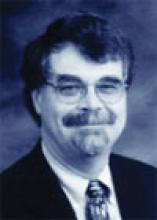Lately I have become more alert to the warning signs of aging—my own aging, that is. For example, I realize that I am old enough to remember at least three previous “rediscoveries” of MAO inhibitors.
MAOIs were discovered before tricyclic antidepressants but were largely displaced from clinical practice by TCAs by the end of the 1950s. MAOIs were first rediscovered in the 1960s as a treatment for “atypical depression,” characterized by too much rather than too little sleep and appetite. Soon afterward, however, these agents went into eclipse again. In the 1970s and 1980s, they were rediscovered as a treatment for mild (but not severe) depression and maybe for subsyndromal depressive symptoms. In the 1990s, selective and reversible MAOIs gave rise to another rediscovery.
Jonathan Cole, MD (who is significantly older than I am) and J. Alexander Bodkin, MD, have contributed an outstanding review of MAOIs for this month’s issue. Their review reassures me that psychopharmacology is progressing steadily, although it has seemed pretty confusing all the while. I had more or less given up using MAOIs before reading this article, but now I am going to start prescribing them again—at least occasionally.
Also in this issue, John Zajecka, MD, and Rajendra Tummala, MD, address the role of TCAs in modern psychiatric practice. I must admit that I kept using tricyclics after selective serotonin reuptake inhibitors and similar agents became the predominant therapeutic modality. I saw no reason to switch patients who had been doing well on TCAs for years without intolerable side effects. I am happy that this article gives me a rationale for continuing to use them—at least occasionally.
Fibromyalgia is a condition that—like the MAOIs—has been discovered, faded into obscurity, and been rediscovered numerous times since it was first described in 1904 and declared an epidemic in the 1990s. Lately, many patients I have seen with this chronic problem have shown up with reams of printouts from the Internet about fibromyalgia and frequently also about irritable bowel syndrome, interstitial cystitis, chronic fatigue syndrome, and migraine headache. The insightful discussion of the CNS connection in fibromyalgia by Lesley Arnold, MD, has helped me catch up with my patients.
The article “Substance abuse: 12 principles to more effective outpatient treatment” by Drs. Robert Forman, Charles Dackis, and Richard Rawson is one of the wisest papers I have read recently because it integrates new perspectives with a wealth of clinical experience. And thanks to Loren Friedman’s review of medications in the pipeline for Alzheimer’s disease, I now know about treatments that are likely to reach the market soon.
It is hard to keep up with everything new in psychiatry and even harder to retain everything old at the same time. But integrating the new with the old is how we develop wisdom, isn’t it? If so, I think this month’s issue of Current Psychiatry will make us all a bit wiser.
As always, I value your reaction to the articles in this month’s issue and your suggestions for future topics. Write to Current Psychiatry, Quadrant HealthCom Inc., 110 Summit Ave., Montvale, NJ 07645, or email me at hillarjr@email.uc.edu.


